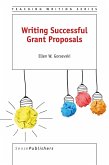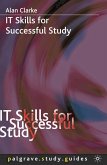This innovative book looks at the keys for success in dyslexic adults, comparing both those who are successful and less successful, enabling parents and teachers to use these keys to best support young dyslexics. These keys look at home life, school, career choices, working relationships, coping strategies, traits, unique selling points, and what is considered success for somebody with dyslexia. The Successful Dyslexic questions if school-based trauma can be used positively, as both successful and unsuccessful dyslexic adults share the same traumatic school experiences. It is how these adult dyslexics have used this trauma, positively or negatively that has set them on the path for success, or to struggle as adults searching for a worthwhile career. The theories of 'disability paradox' and 'post-traumatic growth' are used to understand why despite having a disability, many dyslexics can be, and are, highly successful. This book details an interview study of 27 successful and 10 less successful dyslexics, with 2 expert interviews, and supported by two large online studies. In total this book includes the contribution of 191 adult dyslexics. Each in-depth interview has sought to understand the individual's journey from childhood to adulthood, and their quotes are used to enlighten the reader to each of their individual experiences. Armed with these insights, it is hoped that parents and teachers of young dyslexics can set them on the path to unlock their own future success.
Dieser Download kann aus rechtlichen Gründen nur mit Rechnungsadresse in A, B, BG, CY, CZ, D, DK, EW, E, FIN, F, GR, HR, H, IRL, I, LT, L, LR, M, NL, PL, P, R, S, SLO, SK ausgeliefert werden.









